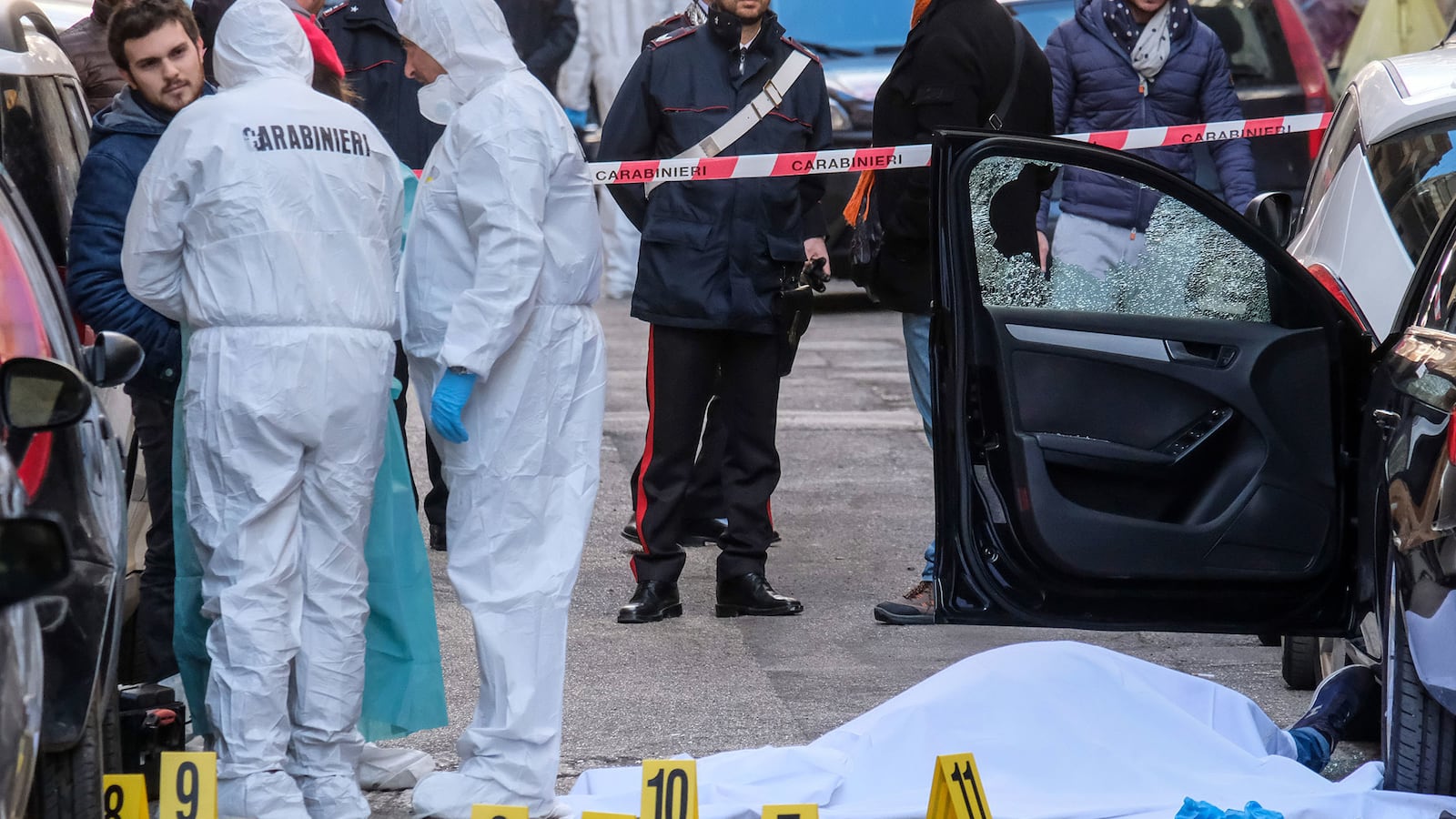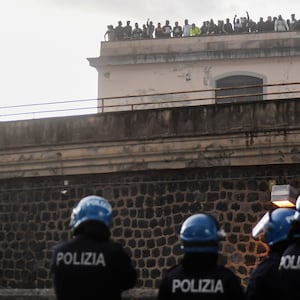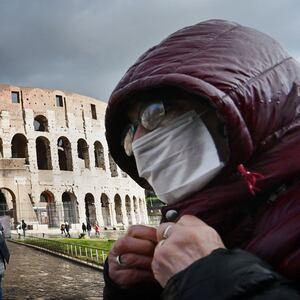ROME—Police have been dispatched to the streets of Palermo, Sicily, to try to calm an increasingly anxious population under lockdown. Several stores in the area have reported widespread shoplifting, looting, and nightly break-ins. Guards now stand outside grocery stores after people started refusing to pay for groceries, taking what they needed in front of helpless store clerks too afraid of the spread of coronavirus to try to stop them.
Closed Facebook groups with thousands of members are calling for civil disobedience and riots in the streets. And to make matters worse, the Tirrenia CIN ferry company, responsible for getting crucial supplies from the mainland, has gone bankrupt.
Authorities warn that the Mafia—likely behind the unrest—will soon step in as an ostensible savior bringing the southern region back to order, offering loans and black market jobs to fill the vacuum created by a lack of state attention to anyone outside the coronavirus red zone in the north. In exchange La Cosa Nostra will have recruited a whole new army of civilians ready to help it exploit whatever rises from the pandemic ashes.
All this, and we aren’t even halfway through the fourth week of the lockdown, now extended until “at least Easter” with most authorities cautioning it will be more like June or later before life is anywhere close to what it once was.
As the novel coronavirus guts the northern regions of Italy, those in the south, where the cases are far fewer for now, have a different ailment: frustration and anger. People are missing their first paychecks just as rent and mortgage payments are due. Factories are closed, businesses are failing daily, and some 3.7 million people who work in the undocumented black economy are left out, unqualified for what little official help is on offer.
“We need to act fast, more than fast,” Palermo Mayor Leoluca Orlando told reporters this week. “Distress could turn into violence.”
Orlando worries that the Sicilian Mafia or Cosa Nostra is behind a series of those closed Facebook groups that call for unrest if the lockdown isn’t lifted in areas where the coronavirus risk appears to be less of a threat.
Every single province in Italy has hundreds of cases and several deaths, in fact, but a lack of aggressive testing has led to a false sense of security, implying that COVID-19 isn’t much of a problem south of Rome. In Italy’s southern regions, known as the mezzogiorno, infrastructure is weak, long pillaged by rampant organized crime. If a new cluster develops anywhere in the South, the potential human costs are almost unimaginable. If hospitals couldn’t handle COVID-19 in the industrious, wealthy north, there is little hope for the rest of the country.
The idea that the Mafia is fanning the flames of unrest so it can swoop in to appear to bring order has historical foundations. The Mafia in Sicily began exactly that way in the 19th century, offering an alternative to the state that appeared weak and unable to help the people. It took decades and massive loss of life to beat it back, but the pandemic will almost surely give it new life, says Giuseppe Antoci, president of the Caponnetto Foundation for victims of Mafia attacks.
“In this difficult moment in which many families and entrepreneurs are in great difficulty, in a moment in which small and medium-sized enterprises are suffering from a devastating economic impact, here, right now, the Mafia is ready to intervene,” Antoci told The Daily Beast in a statement. “They are ready to insert their liquidity, ready to offer it through usury to those who will then be strangled and enslaved by it, or, simply, offer it to those who will then be hired in the various organizations.”
Palermo Mayor Orlando says the city is not equipped to impose order if citizens take to the streets to protest the lockdown. “The situation is very heavy. Because behind the threats of unrest echoed via social networks is a den of Mafia jackals ready to exploit the desperation of the new poor from coronavirus,” Orlando said. “We cannot underestimate the risk of an alliance cemented by despair. In the North the risk is speculative, but here, where there is greater poverty, the danger is that desperate subjects may fall into the hands of criminals, Mafia members.”
Unrest in Sicily and the southern regions will very likely be as contagious as the coronavirus, and will spread north. Prime Minister Giuseppe Conte announced a stimulus package that includes €400 million for mayors to convert to vouchers for groceries for those whose jobs have been lost during the lockdown. Southern mayors say that money offered is part of a pre-existing solidarity package that has nothing to do with the coronavirus and that communities are on the verge of financial collapse.
In Palermo, to make sure the money isn’t extorted or otherwise stolen, authorities are not giving the cash to those whose financial situations have been compromised by the lockdown. “We’re giving shopping packages with pasta, bread, milk and sugar,” Orlando says. “They go to the old poor and the new poor who are the bed and breakfast owners, the travel agency collaborators, the gym instructors, and all the people with atypical jobs who cannot access employee social safety nets.”
And he says that soon those people will be in every single province in the entire country. “This isn't about the South, it's about the whole country,” Orlando says. “Because the social unrest that is erupting in the South will also explode in the North.”








